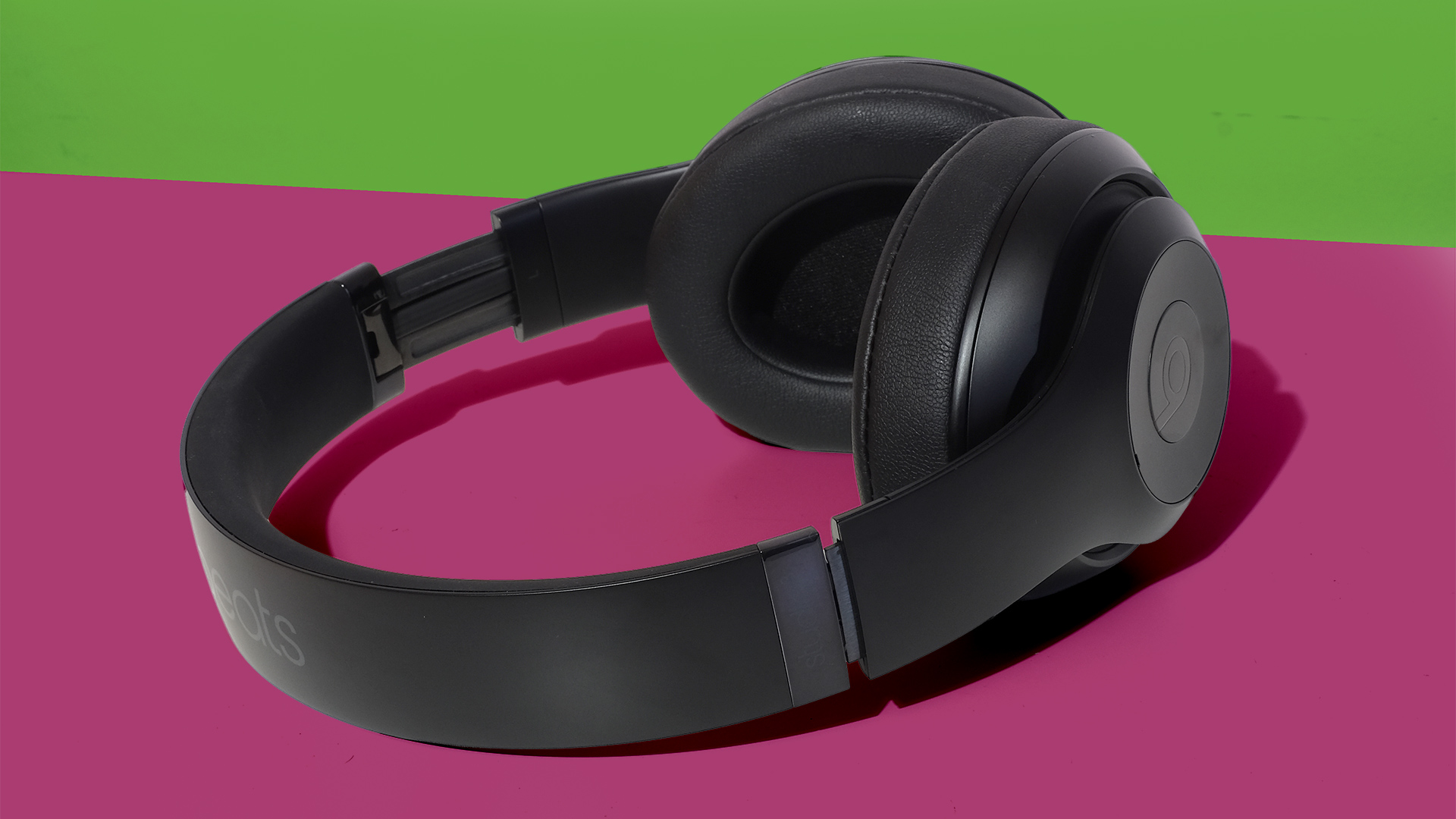TechRadar Verdict
The Beats Studio 3 Wireless make good use of Apple's W1 chip to deliver good features, connectivity and battery life. Even their noise-cancellation is decent, if not class-leading. Our only issue with the headphones is their overall sound quality, which lags behind the similarly priced competition.
Pros
- +
Great wireless performance
- +
Solid sound
- +
Top battery life
Cons
- -
Soggy mids
- -
Don’t quite deliver the sub-bass power you may want
Why you can trust TechRadar
The Beats Studio 3 Wireless are Beats’, and therefore Apple’s, premier full-size wireless headphones, enduring as the brand's flagship over-ear headphones since their release in 2017.
These over-ear headphones provide good comfort, great wireless connectivity, and excellent battery life; for excellent noise cancelation and sound quality you might want to look elsewhere, though.
However, that age does mean they're no longer competitive when priced at anything close to their $349 / £299 launch price. Better noise-cancelling headphones (like the Sony WH-1000XM3, for example) are available for much less during regular deals, and so we only recommend picking up the Beats Studio 3 Wireless today when they're on a deal bringing them down to half their original price, or less. But if you can find them for that price, they're still a tempting buy today overall.
Design
The Beats Studio 3 Wireless look very similar to the previous generation of Studio Wireless headphones. Those in the know will spot them from 20m. Abstract the design from the brand, though, and it’s actually tasteful.
These Beats headphones stick fairly close to your head, which is one of the key factors in stopping full-size pairs looking silly. Unlike early Beats, some versions are almost monotone too.
Our all-black pair is about as low-key as Beats headphones are likely to get any time soon. Those after a punchier or gaudy look can have it with other finishes that include classic Beats red with silver highlights and white with gold trim.
In other words, these Beats headphones can still make you look like an extra from a rap video if that’s the aim.

There’s nothing new to see here in terms of build. Most of the Beats Studio 3 Wireless frame is plastic. The pads use synthetic leather that, while soft, looks fake from 2ft away.
Unless you’re desperate for headphones made of real leather, aluminum or Alcantara, it doesn’t matter too much, though. Beats has been criticized for the build of its headphones over the years, but the Beats Studio 3 Wireless seem perfectly well-built to us.
The plastics don’t creak too much. And there’s a well-judged bit of resistance in the fold-up hinge of the headband that stops the stems from flapping around like broken arms with normal use.
The Beats Studio 3 Wireless are also very comfortable. Oval cut-outs in the pads give enough room for most ears, and over-ear headphones like this avoid the ear fatigue problems common among on-ear headphones, like the Beats Solo 3 Wireless and the new Beats Solo Pro.
Connectivity and battery life
Apple’s W1 chip is one of the key changes in the Beats Studio 3 Wireless. This is a custom wireless chipset that takes the wrinkles out of the connection process when hooking up with an iPhone or iPad.
When you turn the Beats Studio 3 Wireless on, you’ll see a pop-up prompt appear on your iPhone with a spinning 3D model of the headphones. You just tap a button on this pop-up to connect. iOS 13 already has a great interface for reconnecting to normal Bluetooth headphones, but the W1 chip makes the interaction seem more direct.
Since the Beats Studio 3 Wireless headphones were launched, Apple has improved its wireless technology to bring us the H1 headphone chip, as seen in the new AirPods Pro and the Powerbeats Pro.
The H1 chip is still very good though; it also lets you see the headphones’ battery per cent from the app you’re using to stream, which is handy.
Battery life is great, although with all features engaged stamina is similar to the Bose QuietComfort 35’s. You’ll get 22 hours with wireless and ANC, or 20 from Bose. Switch active noise cancellation off and the Studio 3 Wireless will last up to 40 hours: fab.
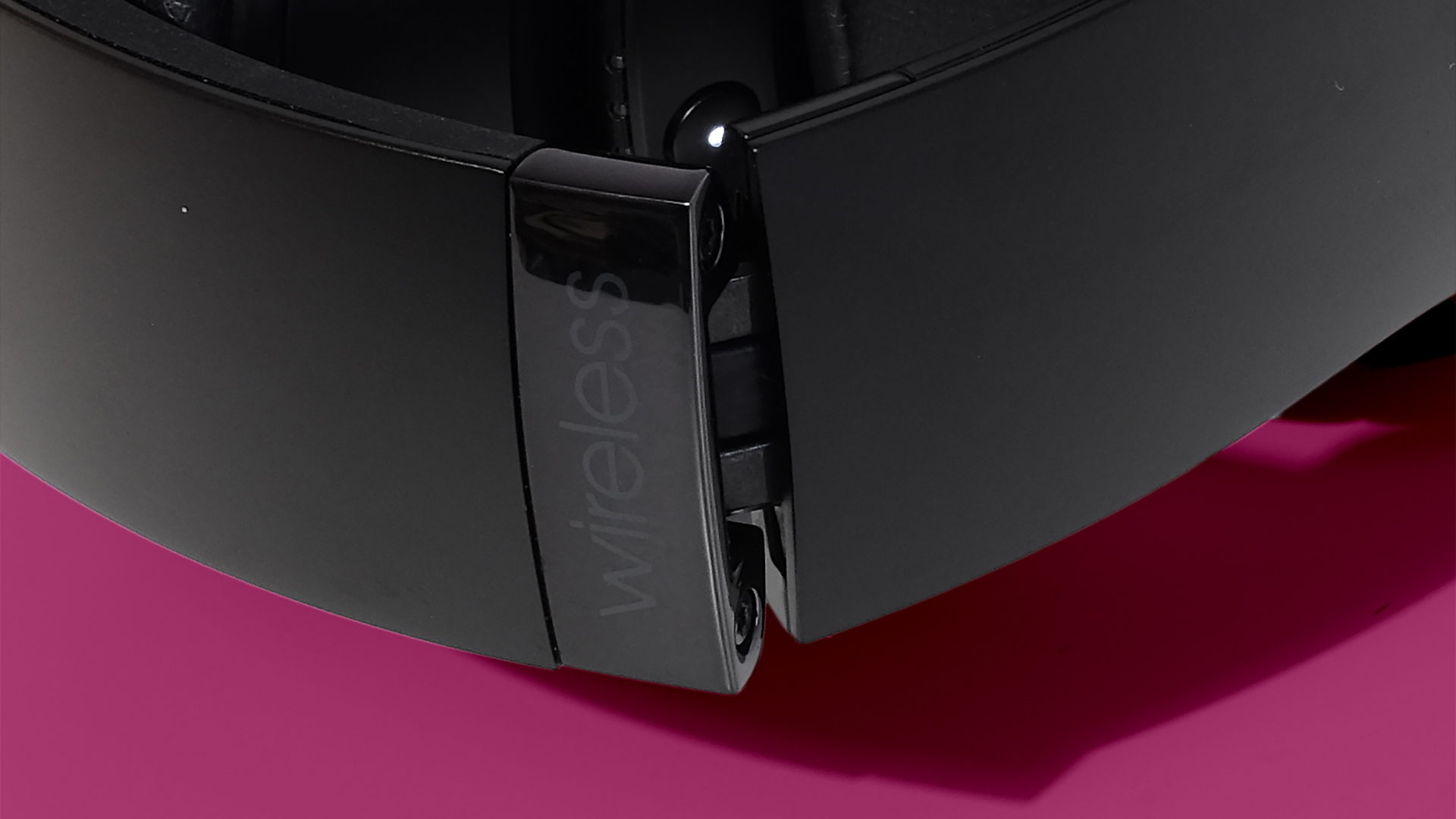
Like the last Studio Wireless pair, there’s also a little 5-LED indicator by the power button to let you see a rough guide of how much juice is left before you even put them on.
As has become the norm for Beats headphones, wireless performance is just about perfect whether you use an iPhone or an Android. This isn’t something only just get with Beats/Apple. Sony and other manufacturers also fantastic blip-free wireless these days, but it’s still worth celebrating.
The controls on the left cup can also be used for Androids and iPhones (one Android 8.0 phone struggled, but that’s likely Android’s fault). A central Beats logo button acts as play pause, and changes tracks with multiple taps, while the buttons above and below alter volume. Beats has sensibly stayed away from “fancy” gesture or capacitive controls. They’re usually fiddly and rain can stop some working.
Noise cancelation
Pure ANC (Active Noise Cancelation) is another tweaked feature of the Beats Studio 3 Wireless. The Studio series has had active noise cancellation since 2014, but this new version claims to put an extra layer of smarts between noise and your ears.
It is, seemingly, designed to avoid distortion caused by cancellation of louder sources. We’ve heard such distortion in pairs from less experienced noise cancelling headphone makers when taking the London Tube, standing next to the door, but haven’t heard any such distortion from the Bose QuietComfort 35.
Pure ANC also doesn’t solve one of the biggest issues with ANC headphones out in the real world: wind noise. This is where wind whistles around the pinhole mic, which the noise cancellation attempts to correct, in doing so only creating more noise. The Beats Studio 3 Wireless are slightly more susceptible than some to wind noise, but it affect just about all ANC headphones to some degree.
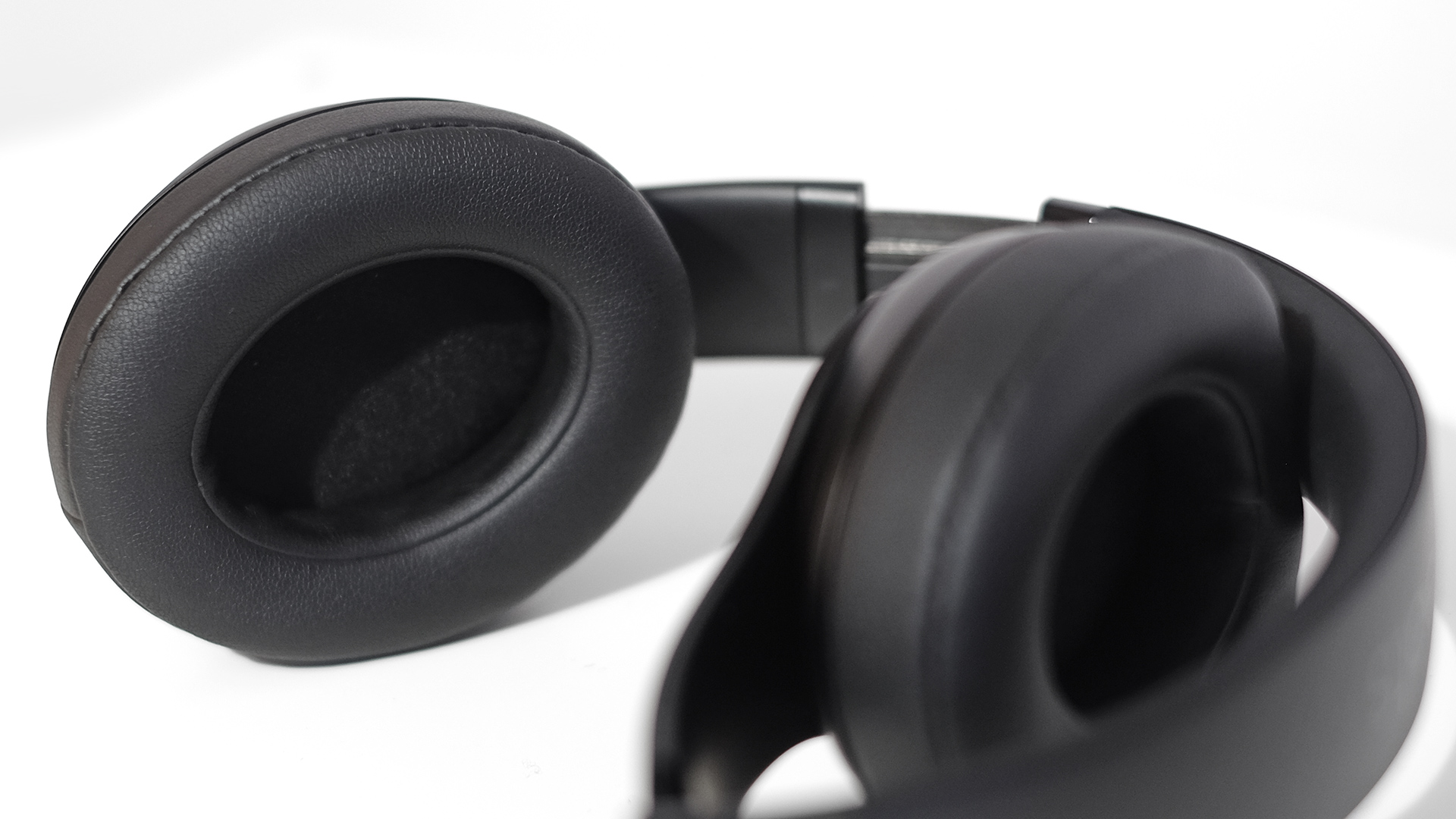
The Beats Studio 3 Wireless’s noise cancellation is reasonably effective, providing the main benefits of making cities less stressful and stopping engine noise from ruining your music. However, the Bose QuietComfort 35’s cancellation is still significantly better.
Passing cars aren’t “turned electric”, reduced to a light whoosh, and the effect isn’t eerily detaching like Bose’s. However, it's good enough that you don’t have to turn the volume up in noisy environments.
Pure ANC also leaves these headphones with a slight low-mid frequency noise bed. Some active noise cancellation headphones sound like digital tinnitus, but the Beats Studio 3 Wireless are more like a record player in terms of this background noise.
Some pairs are a little quieter, but this sort of noise is not at all distracting as soon as there’s any audio coming through the drivers. Don’t worry about it, unless your ears are truly anal.
Beats has marketed “Pure ANC” to sound better than just about anything out there. It isn’t, but it's perfectly decent all the same.
Sound quality
There’s some of the same effect in the Beats Studio 3 Wireless sound. Buy them, put them on, play a tune or two and very few people are likely to be too disappointed.
The Beats Studio 3 Wireless do not sound overly bassy or juvenile. Beats pairs are no longer the headphone embodiment of people who speak mostly in reality TV slang that changes too quickly to sink into the Oxford English Dictionary.
There’s sound width similar to some of the best travel-friendly headphones, and the Studio 3 Wireless have quite a forward presentation. This makes key parts of a mix seem close to your ears, making sure the sound isn’t too relaxed.
Relatively conservative low or “sub” bass is one potential surprise of the Beats Studio 3 Wireless. The Sennheiser Momentum 2.0 and Plantronics Backbeat Pro 2 are more aggressive here, making kick drums stand out and seem more powerful.
So are the Beats Studio 3 Wireless more “in da Starbucks” than “in da club”? Not quite.
These headphones have another kind of bass emphasis. It’s a thickness in the upper bass and low mids rather than a sub-bass gut punch.
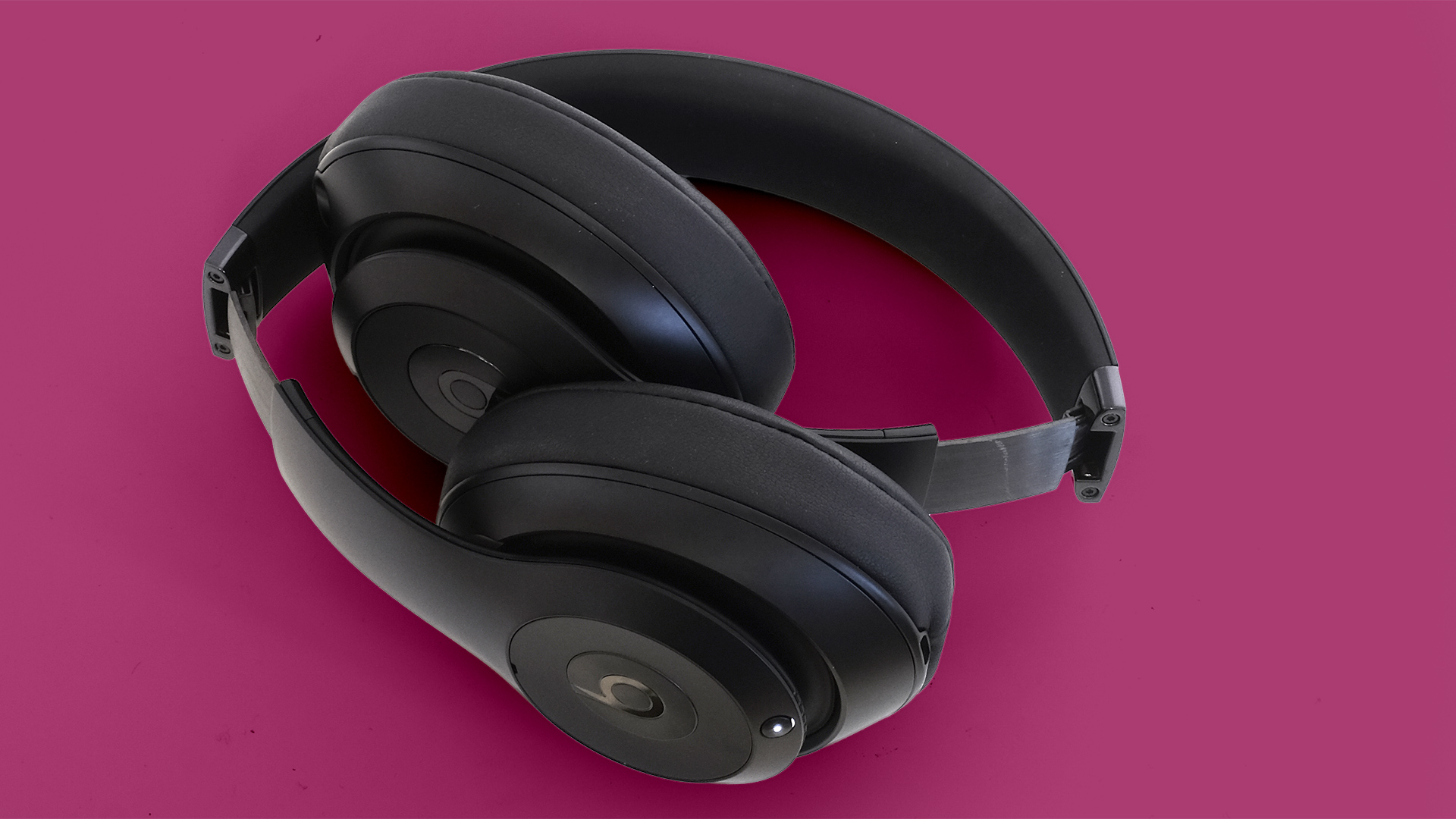
You might think of it as a fat, warm or full tone, which is what leaves a certain bassy aftertaste even though the Beats Studio 3 Wireless are not overloaded with genuinely low frequencies. In a lot of situations this works quite well. Podcasts aren’t underpinned by a bass rumble but voices still sound robust.
Switch to vocal-lead music, particularly that with a gravelly old crooner like Leonard Cohen, and you can hear how this strategy is not perfect. Certain parts of the Beats Studio 3 Wireless’ low-mids end up saturated to the point they sound like wet cardboard, engorged and lacking texture.
This gums up the sound, stopping music from sounding properly separated. It can also seem resonant with certain songs, which is abrasive to the ear.
We’ve heard this mid failing before in Beats headphones and noted how it makes the soundstage seem constrained, even though the problem is in the “middle”, not the top and bottom.
This effect is largely absent in the alternatives from Sennheiser, Plantronics, Bose and, most damningly, the $99 / £85 Urbanista Seattle Wireless. The Beats Studio 3 Wireless sound better than the Urbanistas in other respects, but that a headphone a third the price has more coherent mids is not good news.
The Beats Studio 3 Wireless also have slightly safe treble that lacks a little bite compared to some at the price. But this is very minor compared with the somewhat cloying low mids.
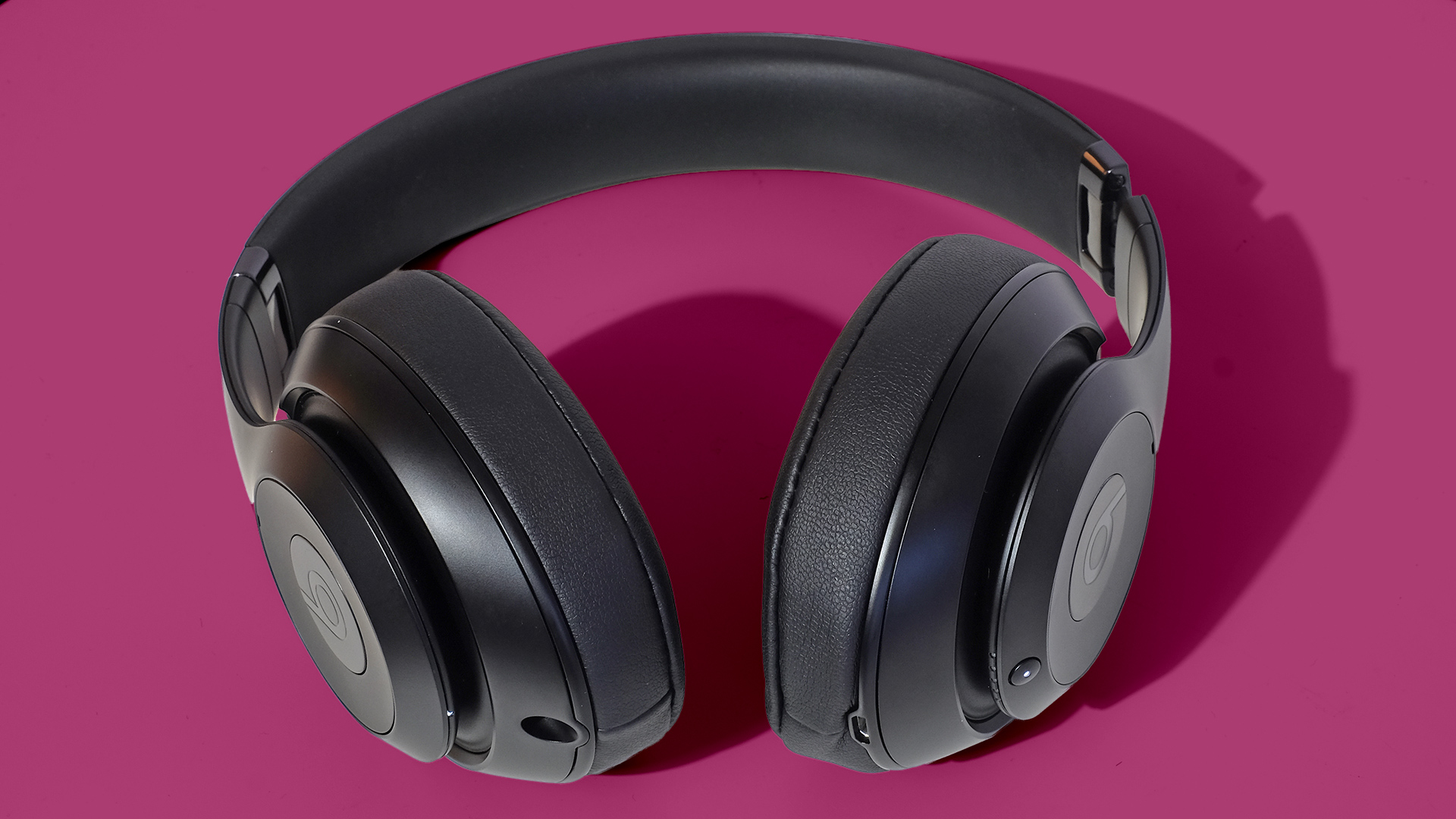
Verdict
If you’re not too picky about audio, you’ll love the Beats Studio 3 Wireless. They look good, are comfortable and sound decent while releasing the pressure valve of city life with active noise cancelation.
Add great battery life and an Apple W1 chip and you have headphones that are very easy to get on with, particularly if you own an iPhone.
However, there are sound issues you just don’t hear in other good headphones at the price. It’s not boomy bass but a tire of blubber sitting between the bass and mids makes the Beats Studio 3 Wireless less articulate and open-sounding than most alternatives.
- For our other top picks, check out our guide to the best wireless headphones, and the best noise-cancelling headphones.
Andrew is a freelance journalist and has been writing and editing for some of the UK's top tech and lifestyle publications including TrustedReviews, Stuff, T3, TechRadar, Lifehacker and others.
